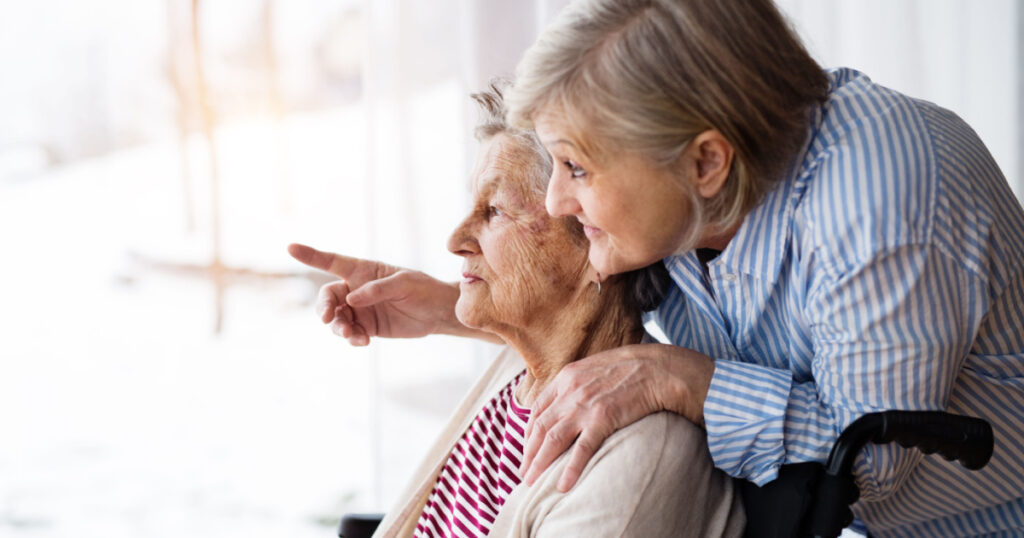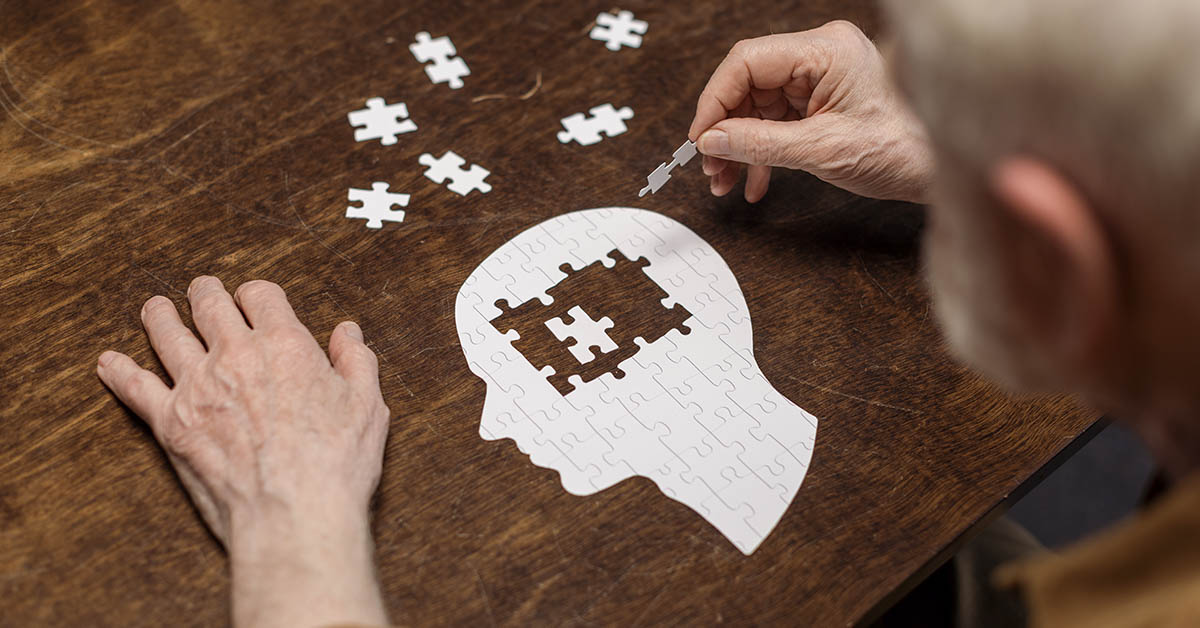Dementia is a neurodegenerative disorder characterized by a decline in cognitive and behavioral abilities. While memory loss is commonly associated with dementia, several behavior changes can be early signs of the condition. Recognizing these changes early on can help seek appropriate medical care and support. Knowing the early signs can also help you learn how to support your loved one during this challenging time.
Early Signs of Dementia: 5 Behavior Changes To Look Out For
Dementia is a complicated illness of the brain. Sadly, it will eventually completely change the person it has affected. This doesn’t happen all at once, however, and often is a slow decline over a number of years. If you don’t know what to look for, you might not even recognize the early signs in your loved one. Understanding what these are will not only help you to get your loved one help quicker, but it will also help you to understand their behavior and support them, rather than create conflict. These are five behavior changes that happen early on in dementia. (1)
1. Apathy

Apathy refers to a lack of interest, motivation, or enthusiasm for previously enjoyed activities. It can manifest as a general disinterest in hobbies, reduced initiative, and an overall loss of drive. Your loved one may not display the same level of engagement or show enthusiasm for their usual interests, whether it be social activities, hobbies, or personal relationships. (2)
Example: A once avid gardener may stop tending to their plants and neglect the garden altogether. They may no longer take pleasure in nurturing the plants or find any enjoyment in maintaining the space.
2. Affective Dysregulation

Affective dysregulation refers to difficulties in regulating emotions. Individuals with dementia may experience frequent mood swings, irritability, tearfulness, or unexplained emotional outbursts. Their emotional responses may seem disproportionate to the situation at hand. (3)
Example: Your loved one might become irritable or aggressive over minor disagreements or in situations that would previously not have affected them emotionally. They may switch rapidly between emotions, going from cheerful to tearful without apparent cause.
Raed: How 82-Year-Old Sylvia Hatzer Reversed Dementia On A Mediterranean Diet
3. Lack of Impulse Control

Individuals with dementia may exhibit a diminished ability to control their impulses. They may make impulsive decisions without considering the consequences. This can lead to inappropriate behavior or difficulty in adhering to social norms. (4)
Example: Your loved one might make impulsive and unnecessary purchases, like buying several of the same item at the grocery store. Or, they might engage in excessive eating without any regard for maintaining a healthy diet.
4. Social Inappropriateness

Social inappropriateness refers to a decline in appropriate social behavior and judgment. Your loved one may exhibit behavior that is socially unacceptable or embarrassing. They may demonstrate a lack of understanding of appropriate boundaries or social contexts. (5)
Example: They might make rude comments or jokes that were deemed inappropriate before. They may also engage in personal topics with strangers or fail to recognize and respect personal space.
5. Abnormal Perceptions or Thoughts

Dementia can manifest in the form of abnormal perceptions and thoughts. Your loved one may experience hallucinations, delusions, or develop unusual beliefs or suspicions. This may lead them to become unusually paranoid or suspicious of others, even people close to them. (6)
Example: They might see or hear things that aren’t there, believing in the presence of people or objects that others cannot perceive. They may develop paranoid thoughts, suspecting family members or friends of negative intentions without any evidence to support their beliefs.
Supporting Your Loved One

Recognizing these early signs and understanding that your loved one might be experiencing dementia can be difficult. However, there are ways to provide support:
- Encourage professional evaluation: If you notice behavior changes consistent with dementia, encourage your loved one to see a medical professional. Early diagnosis allows for appropriate support and intervention.
- Be patient and understanding: Understand that these changes are not intentional and try to be patient with your loved one. Practice empathy and avoid criticizing or blaming them for their behavior.
- Educate yourself: Learn about dementia and its progression to better understand what your loved one might be going through. This knowledge will help you provide appropriate support and make informed decisions.
- Create a safe environment: Make adjustments at home to minimize potential risks and hazards. Ensure that the surroundings are organized and familiar to reduce confusion and disorientation.
- Maintain routines and structure: Establishing a consistent daily routine can help your loved one feel more secure and confident. Keep activities and tasks organized and predictable.
- Connect with support groups: Seek out support groups for both yourself and your loved one. Connecting with others who are experiencing similar challenges can provide emotional and practical support.
- Consider professional help: As the condition progresses, it may become necessary to consider professional caregiving assistance. Professional caregivers can provide personalized care, respite, and additional support.
Don’t Forget To Take Care of Yourself
Remember, it is essential to prioritize self-care as well. The journey of supporting a loved one with dementia can be emotionally and physically demanding. Seek help and support when needed to ensure your own wellbeing.
By recognizing the early signs of dementia and providing appropriate support, you can help your loved one navigate this challenging phase with compassion and care.
Keep Reading: Before Dementia Sets in, Your Body Will Give You These 12 Early Warning Signs
Sources
- “The Mild Behavioral Impairment Checklist (MBI-C): A Rating Scale for Neuropsychiatric Symptoms in Pre-Dementia Populations.” IOS Press. Ismail, Zahinoor, et al.
- “Apathy and APOE in mild behavioral impairment, and risk for incident dementia.” ALZ Journals. Daniella Vellone, et al. December 19, 2022.
- “Effects of race, baseline cognition, and APOE on the association of affective dysregulation with incident dementia: A longitudinal study of dementia-free older adults.” Science Direct. Inaara M. Ebrahim, et al. July 1, 2023.
- “Agitation and impulsivity in mid and late life as possible risk markers for incident dementia.” ALZ Journals. Daniel R. Bateman M.D, et al. September 2020.
- “Social inappropriateness in neurodegenerative disorders.” Cambridge. Philippe Desmarais, et al. July 10, 2017.
- “A longitudinal study of late-life psychosis and incident dementia and the potential effects of race and cognition.” Nature. Zahinoor Ismail, et al. April 18, 2023.

